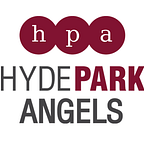How to Read a Convertible Debt Term Sheet
The Ultimate Convertible Debt Term Sheet Glossary
Register for “How to Work with Your Advisors, Board Members, and Investors” on November 12 at 6:00 pm at 1871 to learn more about this and other topics on our blog.
As an entrepreneur raising capital, you have many options on what type of round to pursue: equity, safe, or even convertible debt. Especially in the seed stage, convertible debt can be an appealing option.
If you do decide to go that route — we’ll cover the pro’s and con’s of debt in a future post — use a model convertible debt term sheet, like this Techstars document to help ensure best practices and simplicity in your current and future rounds. More importantly, make sure you understand the terms in the agreement and have a good lawyer to work with throughout the funding process.
Here’s a quick, skimmable glossary of terms in a convertible debt term sheet to understand. The glossary is built so you can follow along — each term is listed in the order it appears in the sample Techstars term sheet.
Convertible Note: An investment vehicle structured as a loan that will convert to equity in a future round.
Financing Amount: How much the investors are putting into the convertible note round.
Closings: The point in time when an investor send in funds to the company. The company has the option for all investors to invest on the same day or accept investments over time from different investors.
Definitive Agreement: Confirmation that there is a mutual understanding between the company and investor that the note will be purchased and the deal will go through.
Maturity Date: The date for when the note is due and payable. Since this is a convertible note, this is typically how long the convertible note can be outstanding before it converts.
Want more resources like this? Subscribe to the HPA newsletter!
Interest: Since a convertible note is a type of loan, it accrues interest until it converts. Interest may be paid out to investors upon conversion, may be put aside to be paid on exit, or may convert into equity.
Conversion to Equity: Defines what triggers the convertible note to transfer into equity and under what structure. The term will highlight what is the minimum amount that will need to be raised in the next round in order to automatically trigger conversion into equity. It also defines what is the highest pre-money valuation that an investor will convert into (typically known as the “Cap”). It will also highlight if there is any percentage discount on the pre-money valuation of the next round.
Sale of the Company: If the founders choose to sell the company before the convertible note transfers into equity, term defines what amount of capital would be returned (e.g., 2x investment amount).
Pre-Payment: The company can pay the investors back their investment amount before a conversion to equity only in special, mutually agreed upon circumstances.
Amendment and Waiver: This gives the ability to change the terms of the agreement only with consent from both the company and the investor.
No Security Interest: This means there are no assets that the investors could seize as collateral.
Fees and Expenses: The company and the investors will each pay for their own fees and expenses associated with closing the deal.
Like what you see? Subscribe to our newsletter!
About Hyde Park Angels
Hyde Park Angels is transforming early-stage investing by taking a people first approach. The organization is the largest and most active angel group in the Midwest. With a membership of over 100 successful entrepreneurs, executives, and venture capitalists, the group provides critical strategic expertise to entrepreneurs and the entrepreneurial community. Nearly 40% of our members have founded a company, 88% are CEO’s, top executives or corporate board members, and 100% invest in startups. By leveraging the members’ deep and broad knowledge of multiple industries and financial capital, Hyde Park Angels has driven multiple exits and invested millions of dollars in over 40 portfolio companies that have created over hundreds of jobs in the Midwest since 2006.
About the Authors
Alida Miranda-Wolff
Alida Miranda-Wolff heads up communications and strategy at Hyde Park Angels, crafting and disseminating the organization’s brand in all forms across all channels. In addition to single-handedly building HPA’s integrated communications plan and executing its core elements, Alida manages membership, partnerships, portfolio company support, and all community engagement.
Prior to joining Hyde Park Angels, Alida served in a variety of journalism, marketing, communications, and management roles, specializing in creating spreadable multimedia content for tech-enabled businesses at all stages. Alida has run several Kickstarter campaigns, including one of the most successful in Chicago history, and still mentors companies running their own campaigns.
Alida graduated Phi Beta Kappa from the University of Chicago in 2014 with multiple honors and awards. She remains active in the university of alumni network, serving on five advisory boards and committees. Alida is also a published author and poet, with two poetry chapbooks currently in print, Domestic Scenes and Tree Fingers.
Michael Sachaj
Michael is the Associate Director of Hyde Park Angels. He leads HPA’s investment opportunities through sourcing deals, conducting due-diligence, and providing oversight of the University of Chicago Booth Associate team. Michael joined Hyde Park Angels after spending three years as a strategy consultant with Booz Allen Hamilton in Washington, D.C. where he worked on a variety of process and customer service improvement efforts. He earned a BA in Political Science from Northwestern University in 2009.
